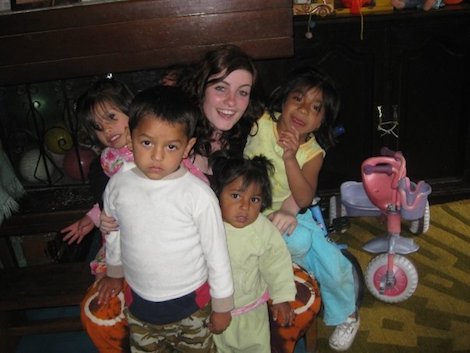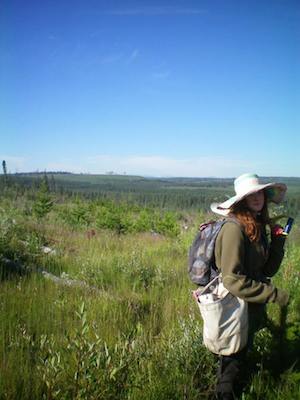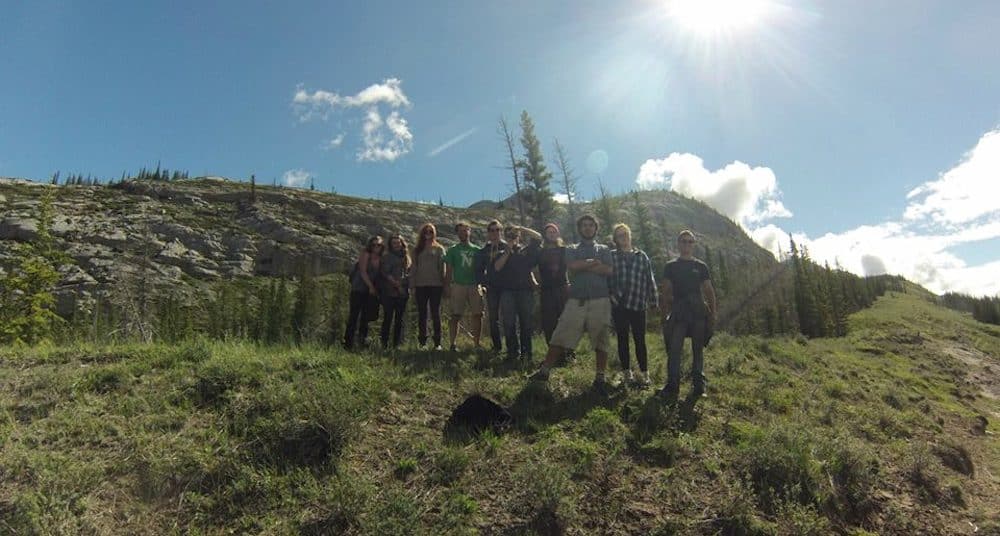“One’s destination is never a place,” wrote Henry Miller in 1957, “but rather a new way of looking at things.” The value of traveling as a means to self-fulfillment is a maxim extending throughout cultures and histories, and that fact alone should be reason enough to take advantage of the seasonal freedom that student status confers.
As four months of summer loom, opportunities to work, volunteer, and study around the world are available to university students and recent graduates without much cash to spare. Listed below are 10 economical possibilities for making this summer both stimulating and productive — in a place as far away from the Exam Centre at 255 McCaul St. as is geographically plausible.
1. Study abroad
The University of Toronto’s own Summer Abroad Program offers accredited courses at international institutions. Courses generally run for four to five weeks and include studies in political science, anthropology, ecology, and language arts. Course topics are often specifically tailored to the region offering the credit: students may learn about water conservation issues in shortage-stricken Australia, for instance, or about the history of capitalism in Hong Kong.
Students can choose from over a dozen locations including Oxford, Berlin, and Shanghai. Early applicants are eligible for a handful of scholarships and bursaries that subsidize the cost significantly. Internet-based companies such as Flatbook and Airbnb allow travelers to sublet their empty rooms and apartments to short-term renters, allowing for income while abroad, which further lowers the expense of studying beyond Canadian borders.
While many of the offered courses are now full, some are still receiving applications, including those in Argentina, Ecuador, and Italy.
2. Go on exchange
The Centre for International Experience (CIE) is a University of Toronto exchange program with partner institutions in various regions. Students may take the equivalent of one course with universities in Singapore, Israel, New Zealand, Denmark, and elsewhere that can be transferred as a general credit towards their degree. Summer exchange options include coursework, fieldwork, language studies, and research opportunities. The CIE offers a number of awards and scholarships, and eligible students are permitted up to three semesters of education abroad.
Fourth-year Peace and Conflict Studies student Julia Wilton studied at the Rothberg International School at Hebrew University in Jerusalem, Israel in 2012. She recalls, “It might sound cliché, but I can say 100% that the experience I had that summer changed my life. Not only did it expand my horizons, allow me to visit new, beautiful places, and teach me more about sensationalized issues and cultures and people in general, but it managed to teach me more about myself as well.”
She adds, “That summer, I learned to stand on my own two feet, and to trust myself to be able to be on my own. I learned that anywhere can become your home, and that what really counts in life is your ability to adjust to your surroundings, meet new people… If you have the opportunity to study abroad, take it, and don’t let anything hold you back.”
3. Work overseas
For recent graduates or students seeking to build to their resumes rather than their transcripts, AIESEC offers a variety of internships in locations worldwide. AIESEC is a student-run organization that helps other youth find work experience in foreign countries. Founded in 1948, AIESEC was intended promote international cooperation in postwar Europe through cultural exchange. The not-for-profit organization has since expanded to involve hundreds of universities in several continents.
AIESEC divides their organization into two streams: their Global Talent program helps young entrepreneurs find placement opportunities with businesses, while their Global Citizenship program directs students to work with NGOs, focusing on the areas of health, education, and environmental sustainability. While interns and volunteers are expected to pay administration fees and airfare, they receive salaries or stipends to cover living expenses while abroad.
AIESEC emphasizes the importance of global experience as a supplement to postsecondary education.
4. Volunteer abroad
Mixing travel and altruism can be a guilt-free method of seeing the world. Among the various organizations that facilitate “volun-touring,” Cosmic Volunteers connects potential candidates with regions that request assistance in a variety of community projects.
Programs range from journalism internships with English-language newspapers in Ghana to building houses in Guatemala to medical internships in Bangalore. While volunteers are required to pay program costs plus airfare, the expenses are comparable to a discount vacation — with the added benefit of contributing time and skills to communities in need of support.

Desabrais in Ecuador
Fourth-year African studies major Kirsten Desabrais travelled with a friend to Quito, Ecuador as a part of the Orphanage Volunteer Program. She recalls the bonds that grew between her and the children there, despite time constraints and language barriers. “The last day at the orphanage was really difficult,” she says. “Especially to see how even after only a short period of time, many of the children grew an attachment to you, and you to them.”
Desabrais adds that the experience helped to shape her perception of poverty and welfare. “It definitely opened my eyes to not taking things for granted,” she says. “It allows you to look at your own life… and realize that there is more to life then the things we think we ‘need.’”
5. Learn French for free
The French Language Bursary Program, also called the Explore program, offers a subsidized five-week intensive learning opportunity in locations across Canada. Participants can study elementary to advanced French through universities in cities from Vancouver to Montreal, where students stay in vacated dorms on UQAM’s campus in the downtown core.
Though applications cost $200, and placement is not guaranteed due to applicant volume, selected participants receive free boarding in a college residence or with a host family and receive a $500 bursary for other expenses. Applications for 2014 are now closed, but the program continues next year.
6. Work on an organic farm
Do you have bus fare to Mexico? Because that’s all you would need to spend the summer there. Worldwide Opportunities on Organic Farms (WWOOF) is a work exchange organization with associated farms in over 50 countries. Host families trade room and board for part-time labour on their farms, offering daily meals, beds, and hands-on education about organic horticulture. Volunteers are expected to work 4-6 hours per day, with afternoons and evenings free to explore surrounding areas. Chores include harvesting, sowing, making compost, feeding and milking livestock, and assisting in skilled tasks such as cheese- and wine-making.
Prospective farmers sign up for a small fee with members of WWOOF International and contact host farms directly through WWOOF’s database, arranging the length of their stay prior to arrival. Using this method for extensive travel provides the opportunity to backpack throughout entire continents at a minimal cost in addition to offering valuable insight into the processes employed by food production agents around the world.
7. Learn to live sustainably
Located in Taos, New Mexico, the Earthship Biotecture Academy offers four-week training camps on sustainable living. Students of the Earthship Academy learn the basics of electricity, agriculture, water filtration, and construction, all for the purpose of building their own Earthships later on.
An Earthship is a structure made primarily from recycled car tires packed with dirt and covered in plaster. Despite its dubious composition, the final result is an aesthetically sensible building that, due to thermal mass construction, maintains a constant comfortable temperature inside regardless of the climate. This innovation allows Earthships to maximize their ability to conserve energy. Earthships recycle rainwater, are powered by solar and wind energy, and include greenhouses for growing plant matter year-round.
Though tuition for one session at the Earthship Academy costs $2,500, the price may be worth it in the long run. Because they produce their own energy and do not require mortgages, Earthships are viewed as a means to liberate homeowners from economic constraints without requiring them to relinquish the comforts of modern housing.
8. Check out a commune
If social experimentation and alternative lifestyles sound appealing to you, visiting an intentional community — otherwise known as a commune — may be a fulfilling experience. Most communes operate by asking their members to equally contribute a certain amount of money every month, a funding system that allows the community to purchase goods in bulk.
It may sound outlandish, but joining an intentional community can also be empowering: it allows all members equal participation in small-scale political decision-making. The Fellowship for Intentional Communities, an organization created for the purpose of disseminating information about communes internationally, observes this policy: their aim is to “make community accessible for all those who seek it.”
The Fellowship provides an online directory for these alternative societies and those who are interested in joining them. Short-term living arrangements may be made in some communities.
9. Teach English abroad
Countries such as Brazil and China will hire English teachers with only a high school diploma and without fluency in any other language. The downside to teaching English abroad is the preparation involved prior to employment — as well as the regular challenges of classroom instruction — but the experience is well worth it for many expats.
Shortly after graduating, U of T alumni Matthew Birse was referred to a school principal in the Czech Republic by a coworker who had taught overseas. Birse has been back to Europe multiple times, teaching on short contracts in order to fund subsequent travels.
“I used [the Czech Republic] as a hub for backpacking side-trips in countries nearby,” he says. “The Berlin Wall, a Hungarian wedding, and running with the bulls in Pamplona were just a few of my experiences.” Birse advises potential teachers to begin their job search by networking—knowing somebody who has worked in a foreign school is always an asset.
Reputable certificate courses are available to guide applicants to trustworthy employers. Among the top programs available is Oxford Seminars, which offers intensive certificate courses year-round at OISE in downtown Toronto. Upon completion of the teaching course, Oxford Seminars works with graduates to secure job placement in a region of interest, providing students with lists of international language schools. Guidance counsellors are also available, offering sessions to prepare resumes and interview skills.
If a teaching position interests you, just don’t expect to pay off your OSAP debts in one summer— only a handful of countries offer wages comparable to Canadian teaching positions. In most places, however, saving some money is usually possible, and extra income can be made through private tutoring.
10. Plant trees for pay
 Planting trees for a summer is practically a requirement for any cash-strapped college student with a case of wanderlust. It’s also high on the list of demanding jobs: tree planters are paid through a piecework system that often allots as little as 8 cents per tree.
Planting trees for a summer is practically a requirement for any cash-strapped college student with a case of wanderlust. It’s also high on the list of demanding jobs: tree planters are paid through a piecework system that often allots as little as 8 cents per tree.
Workers persistently contend with swarms of blackflies, and close encounters with black bears aren’t uncommon. Planters are expected to sleep in tents—often in sub-zero temperatures—for weeks at a time. The job is physical, asking much of bodies not really evolved to bend over thousands of times a day while carrying half their weight in tree seedlings. Yet, for those who enjoy the challenge of self-improvement, it can be a lucrative opportunity to expand horizons and shrink student debt.
“It was overwhelming, both physically and mentally, the first few weeks,” says Matthew Engerer, a fourth-year psychology major at UTSC. Engerer spent two months near Thunder Bay, Ontario, but landed a job in British Columbia the following season. His second year of planting was a dramatic improvement over his first, as he had developed the expectations necessary to living in the bush.
Apart from the financial benefits, the time away from civilization and modern luxuries imparts a sense of independence and confidence to those who stick with the job.
“A lot of the work is emotional,” Engerer adds. “Be prepared for some depressing times, and be prepared to interact with your coworkers. In the end, it’s their camaraderie that will get you through the difficult parts — when you’re missing home or having a bad day, a friend can make the difference between quitting and finishing your contract.”



